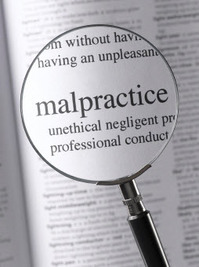October 4, 2010 – A recent Iowa appellate court decision allowed a legal malpractice case to continue against an attorney who failed to ensure that a trust was set up for his former client’s benefit in accordance with a divorce settlement. The plaintiff in the case  hired the attorney to represent her in divorce proceedings in 2001. The parties to the divorce reached a settlement, which required the plaintiff’s ex-husband to make alimony and mortgage payments and establish a trust for the plaintiff’s benefit by March 5, 2001. In the event that the ex-husband predeceased the plaintiff, the trust would pay off the mortgage of the home awarded to plaintiff and pay her alimony payments for the five years following his death.
hired the attorney to represent her in divorce proceedings in 2001. The parties to the divorce reached a settlement, which required the plaintiff’s ex-husband to make alimony and mortgage payments and establish a trust for the plaintiff’s benefit by March 5, 2001. In the event that the ex-husband predeceased the plaintiff, the trust would pay off the mortgage of the home awarded to plaintiff and pay her alimony payments for the five years following his death.
The plaintiff received the initial alimony and mortgage payments, but without the plaintiff’s knowledge, her ex-husband never set up the trust. Subsequently, on May 30, 2005 her ex-husband died and the payments ended eventually resulting in the loss of her home.
On May 25, 2007, the plaintiff filed a legal malpractice claim against her former attorney seeking monetary and emotional damages. The defendant attorney brought a motion for summary judgment asserting that the 5 year statute of limitations (“SOL”) had run out on the plaintiff’s claim. The trial court granted the attorney’s motion asserting that the SOL began to run when the trust was supposed to be established on March 5, 2001.
Continue reading
 Boston Legal Malpractice Lawyer
Boston Legal Malpractice Lawyer


